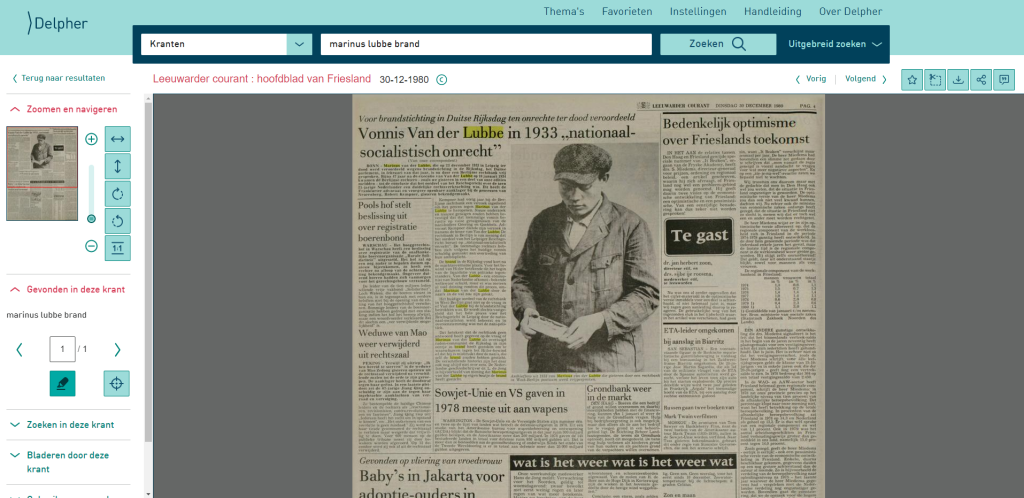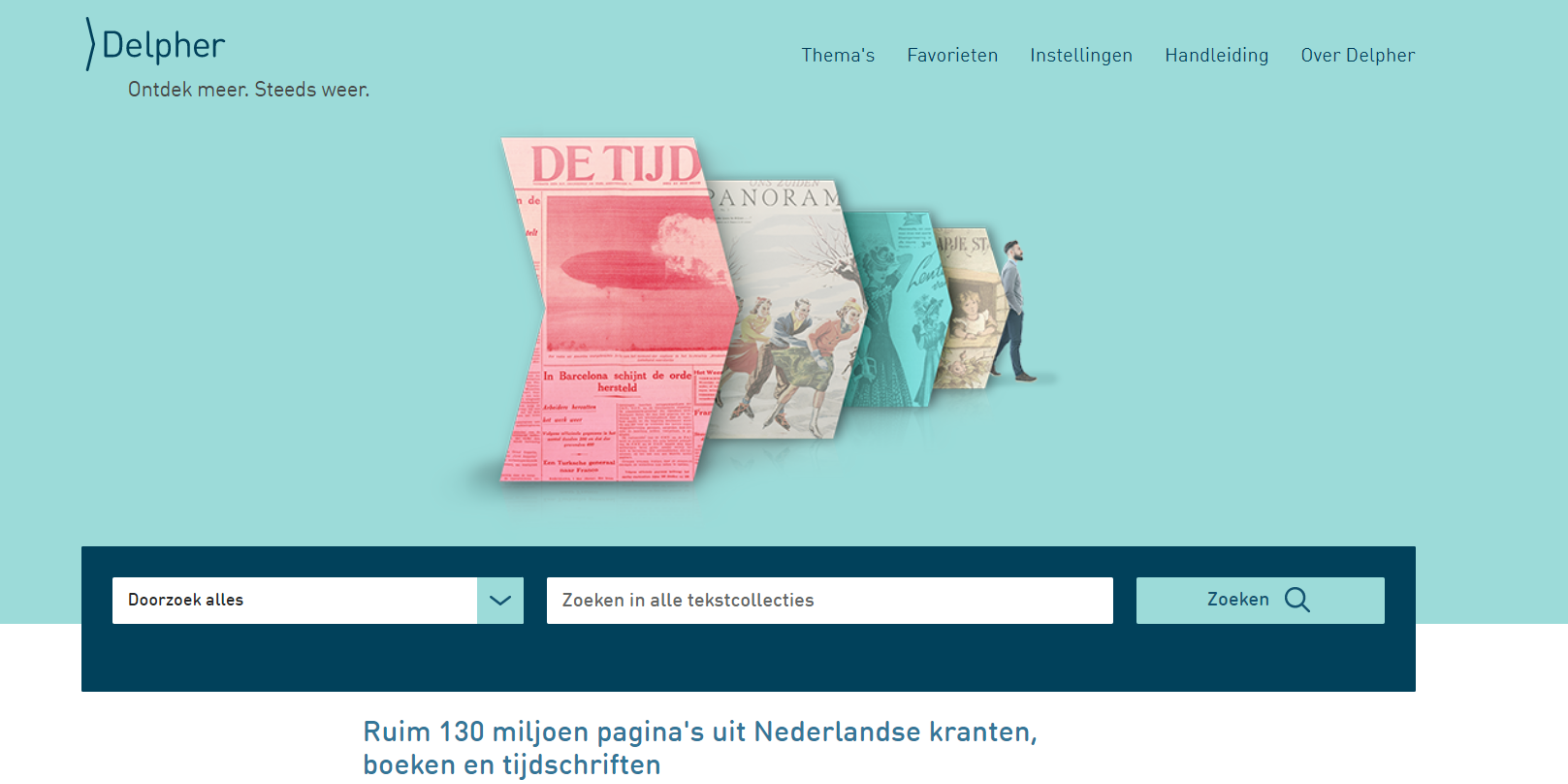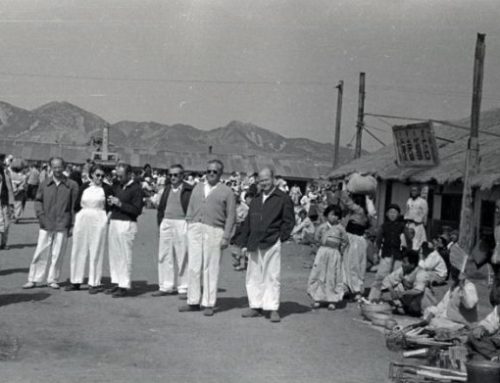On 11 March Europeana co-hosted the Delpher Teacher’s Day at the KB, national library of The Netherlands. A small group of teachers were invited to experiment with the Delpher Newspaper Database (delpher.nl) for educational use. The first part of the day consisted of a plenary session to introduce Delpher to everyone. Afterwards the teachers were divided into working groups to test and share ideas for lesson plans.
First of all, the Delpher Newspaper Database is a public website developed and managed by the national library. The database holds a collection of 18 million newspaper pages dating back as far as the 15th century. It also contains approximately 1.5 million radio bulletins, 17 million pages from journals, and 1 million books. Delpher recently partnered with Europeana to explore the collection’s potential for educational purposes.
That is where the teachers come into the picture. We want to learn from them how digital newspaper collections can be used as source materials in history classes. Ultimately these databases and lesson plans could then be extended to other European countries. But for now, teachers were asked to consider how they might use newspapers as teaching materials during a history lesson. To this end, they were introduced to the digital world of Delpher.
What has made Delpher particularly successful is its well-designed and user-friendly search engine. All its newspaper articles and other content can be searched word for word. By using the advanced search option one can filter by period, newspaper, type of message and distribution area. Also, Delpher makes it easy to find a multitude of sources that contain a particular event, person or keyword in general.

All teachers were asked in advance to choose two themes for a simulated history lesson. One team searched for articles relevant to the reporting of the Reichstag fire on 27 February 1933. The different perspectives of the newspapers immediately stood out. It showed the various political attitudes towards the accusation of the Dutch communist Marinus van der Lubbe. Although sources were easy to find, reading through multiple articles would require much attention from pupils. The same concern was expressed in the other group, looking into the history of women’s rights.
But reading through the newspapers yourself also brings history very close to you, as if it happened yesterday. It instantly evokes reactions of excitement and amazement. In the end, the teachers’ panel came to the joint conclusion that Delpher is suitable for education in two ways. First, you can use the database by having students in preparatory academic education do a little research for a paper. For a theme-based lesson about a particular topical subject, it is a fun and different way to explore the past.
Second, it is an excellent tool for teachers themselves in preparation of a lesson. The newspapers provide for photos, headings and quotes that bring the past to life. If the teacher collects some intriguing articles in advance, those sources are also suitable for group assignments. In this way, Delpher as an extensive digital newspaper collection can be a valuable addition to the history lesson.
For more information on the Delpher tool you can take a look at their YouTube channel here.













